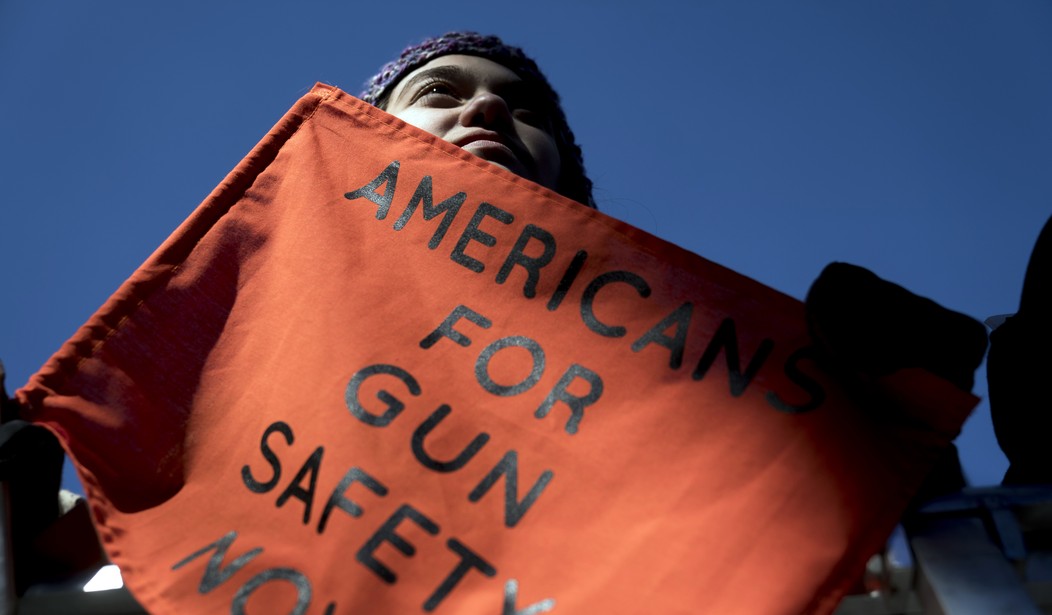We live in a world where a lot of anti-gun propaganda is legitimized by an anti-gun media. We’ve seen it time and time again.
For example, when The Trace contributes to a report in a mainstream media outlet, they typically fail to note their anti-Second Amendment benefactors.
It’s worse when it’s anti-gun research masquerading as unbiased science.
Then, of course, we have the media presenting it uncritically as well.
Gun violence sometime seems so baked into the American system by the Second Amendment and the political clout of the gun lobby that we lose sight of our ability to intervene. So a reader’s tip to visit the website of the Johns Hopkins Center for Gun Violence Solutions offered a dose of perspective from which all Americans can profit.
The center, by its own description, conducts “rigorous research” and uses it to promote evidence-based gun policies and programs in communities. But what the center also tries to do is draw in and teach members of the public how to implement sane gun policies.
Anyone who feels helpless with the mass shootings this country has endured recently, anyone reeling from the nation’s perpetual individual firearms-related homicides and suicides should check out the Hopkins center’s “teach outs.”
They offer an online framework that provides the data and planning tools necessary for taking on the nation’s deep-pocketed merchants of death. We decided to start by watching the recording of a 2020 teach-out that dealt with “Firearm Acquisition, Background Checks, and Handgun Purchaser Licensing.”
That, of course, comes from the center within the Bloomberg School of Public Health. It’s also a supposed research institute that has ties to avowed gun control advocacy (under the euphemism of “gun safety”) groups.
And they can call their research rigorous all they want, but it’s not.
Little anti-gun research is. That’s not just my determination, either.
In fact, here’s an interesting fact from that original piece:
In terms of the gun control studies deemed rigorous by RAND, this means that even if there were no relationship between gun laws and violence—much like the relationship between drinking milk and getting into car accidents—we’d nevertheless expect about five percent of the studies’ 722 tests, or 36 results, to show that gun regulations had a significant impact. But the actual papers found positive results for only 18 combinations of gun control measure and outcome (such as waiting periods and gun suicides). That’s not directly comparable to the 36 expected false positives, since some combinations had the support of multiple studies. But it’s not out of line with what we would expect if gun control measures made no difference.
Also concerning is the fact that there was only one negative result in which the researchers reported that a gun control measure seemed to lead to an increase in bad outcomes or more violence. Given the large number of studies done on this topic, there’s a high statistical likelihood that researchers would have come up with more such findings just by random chance. This indicates that researchers may have suppressed results that suggest gun control measures are not working as intended.
So yeah, I’m more than a little skeptical of most so-called gun research.
See, while this editorial presents this as just unbiased science–and remember, we should always trust the science no matter what–and they are either ignorant of the ties to anti-gun funding or want to keep you ignorant of it.
This wouldn’t be an issue if you could legitimately trust the research itself, but these supposedly rigorous studies have a tendency to never show a pro-gun outcome, which as noted above is statistically unlikely. When you consider the possibility of cooking the books, so to speak, then suddenly it makes sense.
So no, we shouldn’t just listen and do what we’re told, even if it actually results in more lives lost in the process.
That’s right, that’s what’s on the table.
See, gun control doesn’t stop bad people. It only inhibits good people. Criminals don’t generally obtain their firearms via lawful sources. They either steal them, buy them from someone who stole them, or get someone to obtain one fraudulently for them.
Meanwhile, good, decent, law-abiding people are forced to jump through more and more hoops in order to exercise a constitutionally protected right.
And these jackwagons keep coming up with “research” that’s designed not to find the truth but to justify still more of these anti-gun rules.
Sorry, hard pass.








Join the conversation as a VIP Member